
Why is vegan milk more expensive than cow's milk?
Why is almond mylk so expensive? It’s just made from almonds!

We’re going to dish 5 reasons for this, but first we want to dispel the myth that a plant-based diet is expensive and inaccessible.
Many cuisines are based on inexpensive ingredients that can be used in creative ways to make affordable, nutritious meals. Indian cuisine is made up of many dishes that are naturally free of meat and dairy.
Think about the entire constellation of sabzis (aloo gobi, bhendi fry, chole, kala channa, gobi matar, the list goes on!), sambar, daal, rasam, rotis, pulao, poha, upma, dosas, idlis, and various curries with coconut milk as their base. Even if most people aren't vegan, they're eating a lot of naturally vegan foods without even knowing it!
Going back to the topic, the biggest obstacle in a plant-based diet is recreating a dish that explicitly uses dairy alternatives. When we want to make a cup of tea or bake a cake for someone's birthday, we find ourselves searching for a plant-based mylk alternative.
These days, grocery store shelves are lined up with different brands all showing off different ingredients, but it's hard to ignore the price tag. More often than not, it can discourage someone and leave a bad taste in their mouth.
So, why is mylk priced higher than dairy? Surely, grinding a bunch of grains or seeds doesn't warrant a high price, right? In this blog post, we're going to lay out the factors that determine the affordability of a mylk.
How It’s Manufactured
You can’t know every step of the process, but we can tell you your choice of mylk likely involves crushing ingredients, then processing them using technology and methods that are both complex (i.e., involving complicated machinery or procedures) and experimental (being done for the first time).
Next, you have the removal of particles left over from the crushing process, inactivation of unwanted enzymes, and addition of nutrients by fortification. These are all part of a more elaborate processing cycle, and if you add all these things up, it often results in a complex and sophisticated product.
Economies Of Scale
Mylk can be appealing to a variety of different consumers: vegans, people with strict diets for health reasons, people who consider themselves mostly vegetarian (often referred to as ‘flexitarians’), and even non-vegetarians who have simply become interested in plant-based food.
Altogether, they comprise the consumer base that provides mylk companies a bulk of their revenue. However, despite significant leaps in plant-based diets worldwide, mylk still only occupies a fraction of the market.
As a result, it's difficult for manufacturers to buy bulk quantities of raw materials required to slash prices; they haven't yet achieved economies of scale. Once a larger scale is reached - and this may happen soon - the cost of mylk will drop.
Taxation
Mylk seems to be taxed as a premium product. India’s current GST on soya milk is at 12%, while all other mylks are taxed at 18%. The 18% GST places products such as cashew-oat milk, almond milk, etc. in the same category as ‘Other non-alcoholic beverages’. Now, you may ask, “Why is this new? All products have a tax on them!” or “This is the way the market is! Why are you complaining?”. Here’s why—
Dairy Is Heavily Subsidised
There is NO tax on dairy products!
In fact, (and this is a global phenomenon), dairy products are subsidised by governments because they are considered an essential good necessary for the poorest in society.
Humans have been relying on the milk of other animals for centuries. Across the globe, you can find traditions of dairy farming that stretch back through history. Governments have realised this and sought to use this as a way to provide easy nutrition for their people. It also presents an entire economy of dairy farmers that, when tapped into, can prove very profitable for everyone involved.
India has a history that spans close to half a century of governments boosting the dairy industry through subsidies and education about modern technology. The White Revolution Operation Flood began in 1970 and was a concerted attempt by the government to boost dairy production in India. In 2019, the government allocated ₹2240 crores for schemes within the dairy industry. All of these factors make mylk more expensive than dairy.
There’s An Invisible Premium
The perception of mylk as an alternative to dairy isn’t widely accepted yet, and it doesn't help that vegan companies are charging a premium in order to send a message: “not everyone can afford our product! We're so different and special. Only those who can afford us belong with our community"
Even though anyone can enjoy mylk, unnecessary premiums and surcharges reinforce the idea that mylk is only for a select few, rather than for everyone.
Change Is Around The Corner
A fair number of food conglomerates have been exploring plant-based protein as a response to the surge created by consumers looking for more sustainable diets. Companies across the globe, for different reasons, are looking to be a part of the shift towards a more sustainable lifestyle.
We take pride in being one of the most affordable vegan brands in India, and even in the world. It hasn’t been easy, but we believe in doing what’s right. We’re getting there, slowly, and in enough time, One Good Mylk will be the same price as dairy!


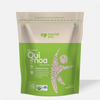
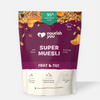
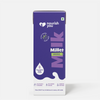
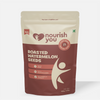
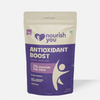
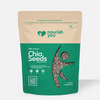
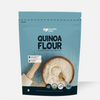
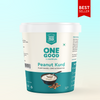
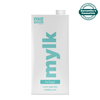
Leave a comment